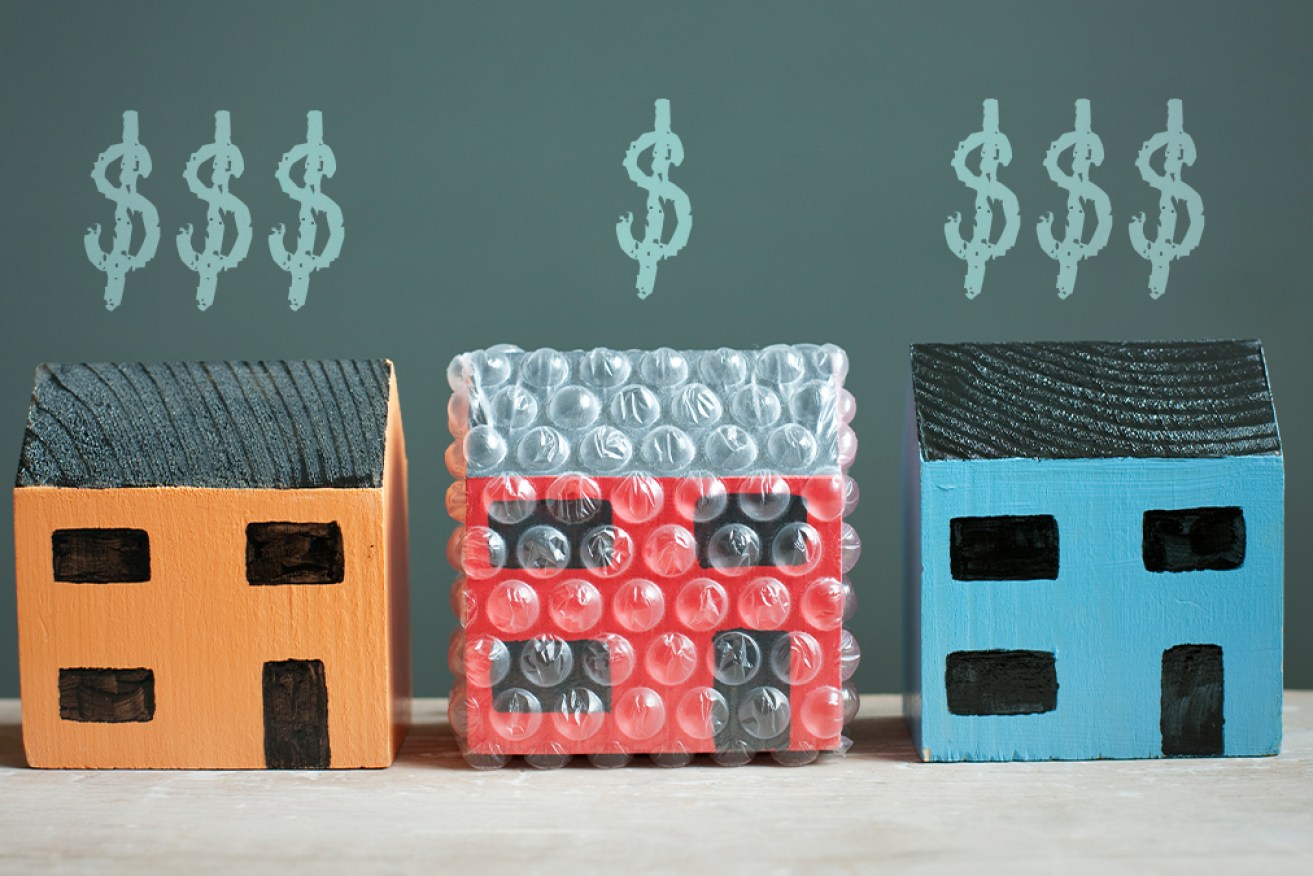Efficiencies can ease cost-of-living pressures


Bubble wrap can cut energy costs when used as insulation. Photo: Getty
Australians are struggling as the cost of living continues to rise.
While there might not be relief anytime soon, there are a few tips people can apply to their lives to help out just a little bit.
Alan Pears AM is a sustainability expert and senior industry fellow at RMIT, and he told The New Daily that Australia falls short when it comes to energy efficiency.
While many people believe renewables are a “silver bullet”, actually teaching people how to use energy efficiently is often overlooked and it could be costing households money.
When times are tough, it might be our first instinct to turn off all the lights and fans to save on our energy bill, but there are more important steps people can take.
Mr Pears has some tangible – and free – steps people can take to ensure they are being energy efficient and saving money.
Bubble wrap your energy bill
If you have an air fryer – use it. Mr Pears said air fryers will yield the same results as an oven, but they use half the electricity.
As well as air fryers using less energy and time, you’re able to heat up leftovers from the fridge, and Mr Pears promised they will be quite tasty and not soggy.
It’s also worth checking your heating and cooling system’s filter.
By doing this, you can avoid having to cough up the money to pay for maintenance, and clogged filters reduce efficiency and output.
He also suggests checking your hour-by-hour electricity usage on your energy provider’s website, to seek out any “energy wasters”, like a faulty fridge.
Perhaps his most peculiar piece of advice is using bubble wrap on windows, but he says it is a recognised strategy that can be useful, though it isn’t exactly for the long haul.
“If you’ve got a heating or cooling outlet near the window blowing hot or cold air across the window, you’ve basically undermined that insulation property,” he said.
Mr Pears explained people don’t realise a single piece of glass has almost no insulation, so by adding bubble wrap to your windows, you’re getting the same effect as double-glazed windows, without the cost.
Double-glazed windows trap still air between the two pieces of glass and bubble wrap can mimic this and help your home cool down or heat up more efficiently.

Bubble wrap can be used as insulation on windows, then your heating and cooling systems will be used more efficiently.
Meal prepping saves money and energy
The rising cost of living isn’t just limited to energy prices, but also food.
Mr Pears said, on average, Australians pay between $2000 to $3000 on their energy bill, but to add some context, on average, Australians throw out $1000 worth of food every year.
Meal prepping is key to preventing food waste and it can help you save on energy.
“If you cook in bulk, that means you can look around and buy the food that’s on special, and you can get a decent amount of it,” he said.
“And then cooking a large batch actually doesn’t take much more energy than cooking one small batch.
“So you’re getting an economy of scale on your cooking energy, but you’re also getting an economies of scale on your time.”
You can then freeze the leftovers, so you have quick and easy meals to reheat when needed, so there’s no need to seek out takeaway.
Mr Pears said if you move leftovers from the freezer to the fridge the day before you’re about to use them up, it will help keep your fridge cooler and therefore, make it more efficient.
As for food shopping – have a look around and compare prices. Also, check the unit cost to compare the price by weight – sometimes it’s more affordable to buy fruit and vegetables separately, as opposed to pre-packed and pre-chopped goods.

Meal prepping can help prevent food going to waste and spending even more money.
The silver lining to the cost-of-living crisis
It’s undeniably a tough time for many Australians right now. However, the one good thing is that some people are seeking out more cost-efficient options that are better for the environment.
Mr Pears said he knows people who have ditched their second car and got themselves an e-bike, thanks to fuel being so expensive.
Even small changes make a small difference.
It’s like a butterfly effect. Take food waste, for example; you might try to use up food to prevent throwing it out and save some money, but you’re actually doing much more.
“When you avoid food waste, you are avoiding all of the energy and carbon emissions that were involved in the production of that food from the farm right through,” Mr Pears said.
“You’re also avoiding the carbon emissions from the food decaying in landfill.”
Australia disregards energy efficiency
Mr Pears said there needs to be more education provided to Australians on how they can get their energy bill down.
As a result, people often cut back on the wrong things.
“I think it’s very easy for people to kind of do the obvious when, in fact, the obvious may not be the best thing for them,” he said.
For example, one of Mr Pears’ friends admitted he didn’t want to turn on the fan on a hot day, afraid he might not be able to pay the energy bill.
“A fan uses, you know, a tiny bit of energy,” he said, laughing, adding it’s the same with lights. If you have modern LED lights, they are “incredibly efficient”.
While renewables might be the future, as a whole, Australia is disregarding how we can use the energy we have right now more efficiently, Mr Pears said.
Given the cost-of-living crisis, he said the time to think about being more energy efficient is now.








